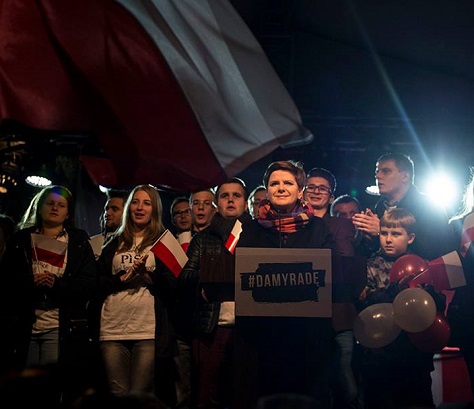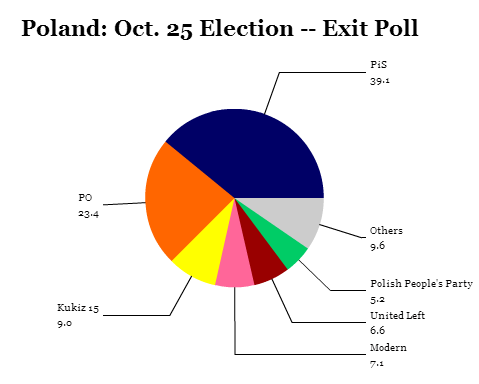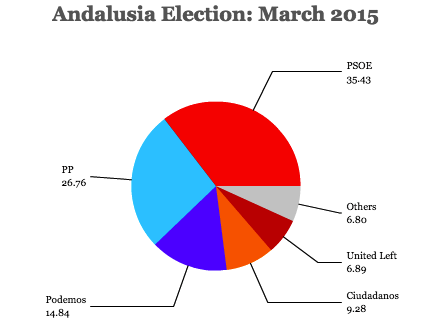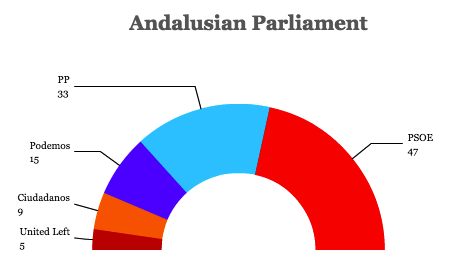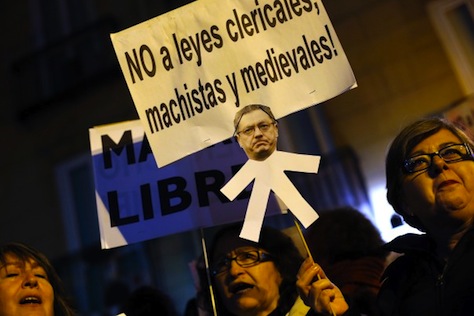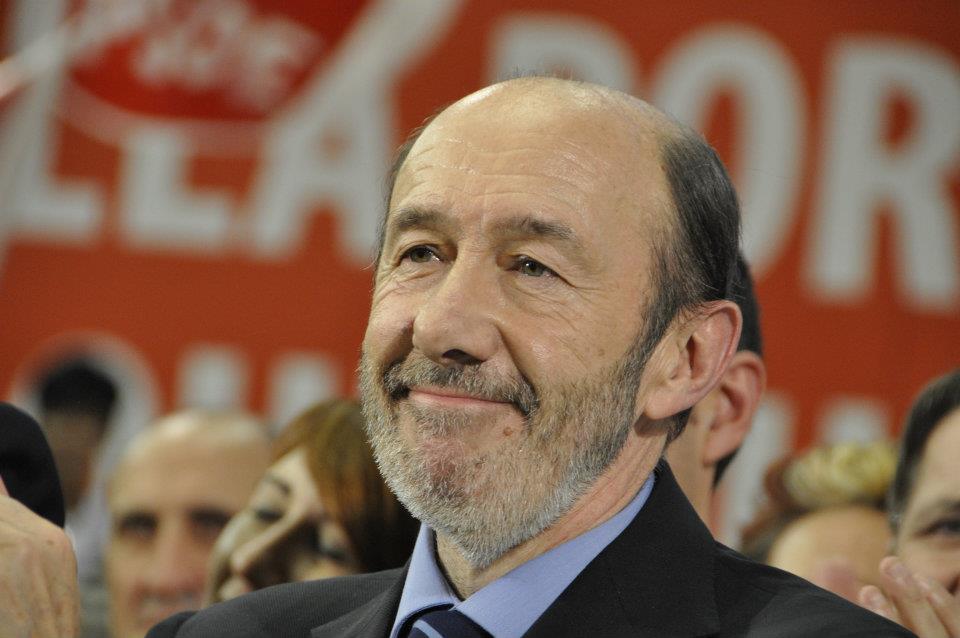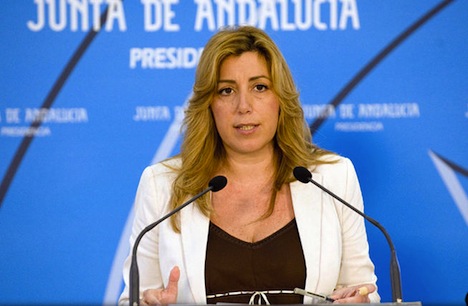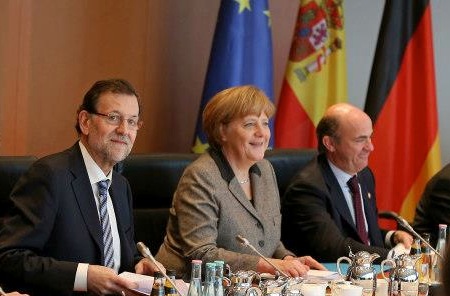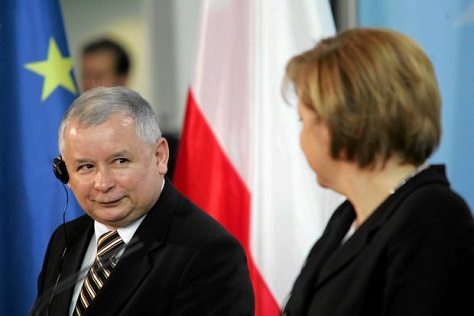
It’s not an exaggeration to say that Jarosław Kaczyński, the leader of Poland’s governing party, Prawo i Sprawiedliwość (PiS, Law and Justice), is now as important figure in European politics as French president François Hollande. ![]()
No one should be surprised that Kaczyński is now the de facto leader of Poland, and no one should have doubted that he would direct a PiS-led government to pursue its full-throated agenda of populist economic sops to Poland’s poorest easterners and socially conservative values, mixed with equal amounts of nativism, euroscepticism and paranoia.
But Poland’s fresh government is facing criticism at home and abroad that it is now dismantling many of the features of the country’s post-Cold War democracy. Notably, critics argue that the new PiS government is co-opting both Poland’s constitutional tribunal and its state-run media.
Andrzej Duda, Poland’s new president has refused to seat five judges appointed by the outgoing government to Poland’s constitutional tribunal. Though two of those judicial appointments were subsequently ruled invalid, the new PiS government pushed forward with five new appointments anyway, leaving three judges validly appointed and unconfirmed. Moreover, the new PiS government passed a law mandating a two-thirds majority (not a simple majority) for constitutional rulings. The new government has also asserted greater political power over the state-controlled media.
Barely three months into Poland’s new government, the European Commission is opening a formal inquiry against the PiS-led administration, headed by EC first vice president Frans Timmermans, to determine whether the new government’s actions amount to a ‘systemic risk’ to Poland’s rule of law, a standard that — so far — hasn’t been breached in Hungary or Romania.
* * * * *
RELATED: Polish conservatives prepare to return to power after 8 years
RELATED: Poland election results: PiS sweeps to power
* * * * *
Those concerns are legitimate, especially insofar as the new government is undermining judicial independence and press freedom, and some Europeans hopes that US president Barack Obama will even exert pressure, through the NATO alliance, on Poland’s new government. But the overwrought response from EU elites will only play into the hands of the PiS’s most eurosceptic leaders and, what’s more, Polish democracy is far too developed in the year 2016 to crumble as easily as many of Kaczyński’s critics fear.
Throughout the European Union, the Greek economic crisis and lingering problems with the eurozone have undermined the monetary pillar of EU integration, while the deluge of migrants from Syria, Iraq, Eritrea and elsewhere, in greater numbers than at any time since World War II, have eroded the Schengen zone and the principle of internal European borders. EU leaders have far greater problems than allowing Kaczyński and the PiS into goading them into confrontation, especially as British voters focus on a 2017 referendum that could result in the United Kingdom leaving the European Union.
Continue reading Give PiS a chance: why the EU has to play nice with Poland’s new populist government


